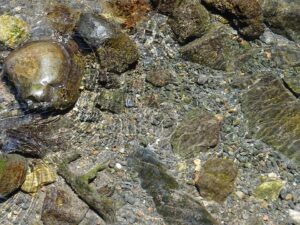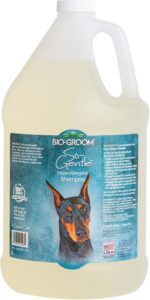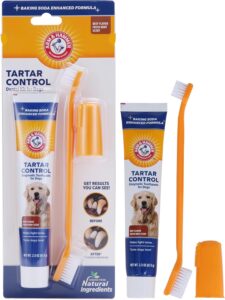
Creating a naturalistic environment for your reptile is not only aesthetically pleasing but also beneficial for the health and well-being of your scaly friend. Incorporating live plants into your reptile’s enclosure can provide numerous benefits, including increased humidity, improved air quality, and opportunities for enrichment. However, not all plants are safe for reptiles. This article delves into the top 10 safe plants for reptile enclosures, ensuring you can enhance your pet’s habitat with confidence.
Spider Plant (Chlorophytum comosum)
The spider plant is a popular choice for reptile enclosures due to its hardiness and adaptability. Its long, arching leaves provide excellent ground cover and climbing opportunities for smaller reptiles. Spider plants thrive in indirect light and can tolerate a range of humidity levels, making them ideal for various reptile habitats. They are non-toxic to reptiles, ensuring your pet’s safety if they decide to take a nibble.
Pothos (Epipremnum aureum)
Pothos is a versatile and resilient plant, perfect for creating a lush, jungle-like atmosphere in your reptile’s enclosure. Known for its rapid growth and low maintenance requirements, pothos can thrive in low to medium light conditions and can withstand high humidity levels. Its trailing vines can be trained to grow along branches or across the enclosure, providing both aesthetic appeal and additional climbing structures for your reptile. Pothos is safe for reptiles, though it should not be ingested in large quantities.
Bromeliads
Bromeliads are tropical plants that can add a splash of color and texture to your reptile’s habitat. Known for their rosette-shaped leaves and vibrant blooms, bromeliads can thrive in humid environments and require moderate to bright indirect light. These plants can be mounted on branches or placed in pots within the enclosure, offering visual interest and natural hiding spots. Bromeliads are generally safe for reptiles, provided they are not ingested in large amounts.
Ficus (Ficus benjamina and Ficus elastica)
The ficus plant, including species such as Ficus benjamina and Ficus elastica, is a popular choice for larger enclosures due to its tree-like growth habit. These plants provide excellent climbing opportunities and can create a natural canopy, offering shade and privacy for your reptile. Ficus plants require moderate light and consistent moisture, making them suitable for many reptile species. While generally safe, it’s important to monitor your pet for any signs of irritation, as some reptiles may be sensitive to the plant’s sap.
Boston Fern (Nephrolepis exaltata)
Boston ferns are lush, feathery plants that thrive in humid environments, making them an excellent choice for tropical reptile enclosures. These ferns require indirect light and consistent moisture, so they are well-suited for enclosures with high humidity. The dense foliage provides excellent cover and enrichment for your reptile. Boston ferns are non-toxic and safe for reptiles, ensuring a worry-free addition to your pet’s habitat.
Jade Plant (Crassula ovata)
The jade plant is a succulent known for its thick, fleshy leaves and tree-like appearance. While typically associated with arid environments, jade plants can thrive in a variety of conditions, making them a versatile choice for reptile enclosures. They prefer bright, indirect light and minimal watering, making them ideal for desert species. Jade plants are non-toxic to reptiles, but their high oxalate content means they should not be consumed in large quantities.
Snake Plant (Sansevieria trifasciata)
Snake plants are hardy, low-maintenance plants that can tolerate a wide range of conditions, making them perfect for both tropical and arid reptile enclosures. Their tall, stiff leaves provide vertical interest and can serve as natural barriers within the habitat. Snake plants require minimal watering and can thrive in low to bright indirect light. They are generally safe for reptiles, though ingestion in large quantities should be avoided.
Dracaena
Dracaena species, including Dracaena marginata and Dracaena deremensis, are popular for their striking foliage and tree-like structure. These plants are well-suited for larger enclosures, providing height and visual interest. Dracaena plants thrive in moderate to bright indirect light and require regular watering to maintain humidity levels. They are non-toxic and safe for reptiles, but it’s important to ensure they are not overwatered, as this can lead to root rot.
Aloe Vera
Aloe vera is a succulent known for its medicinal properties and ease of care. It’s an excellent choice for arid reptile enclosures, as it thrives in bright light and requires minimal watering. Aloe vera’s fleshy leaves can add texture and visual interest to your reptile’s habitat. While the plant is generally safe for reptiles, care should be taken to prevent overconsumption, as the latex in the leaves can cause digestive upset.
Peace Lily (Spathiphyllum)
The peace lily is a popular houseplant that can also enhance tropical reptile enclosures with its lush foliage and elegant white blooms. Peace lilies thrive in low to moderate light conditions and require consistent moisture, making them ideal for humid environments. While they are non-toxic to reptiles, it’s important to note that ingestion of large amounts can cause mild irritation. Peace lilies should be placed out of reach of curious reptiles to prevent overconsumption.
Conclusion
Incorporating live plants into your reptile’s enclosure not only enhances the aesthetic appeal but also provides numerous benefits for your pet’s health and well-being. The top 10 safe plants for reptile enclosures outlined in this article offer a diverse range of textures, colors, and functions, from providing climbing structures to improving air quality and humidity levels. By selecting the appropriate plants for your reptile’s specific needs and ensuring their safety, you can create a vibrant and enriching habitat for your scaly companion.
When introducing live plants to your reptile’s enclosure, it’s important to monitor your pet for any signs of irritation or adverse reactions. Additionally, ensure that any plant you choose is free from pesticides and other chemicals that could be harmful to your pet. With careful selection and maintenance, you can confidently enhance your reptile’s habitat with live plants, creating a natural environment that promotes health, enrichment, and happiness.
#ChatGPT assisted in the creation of this article.








